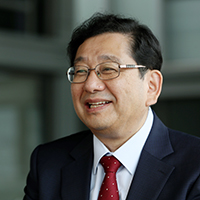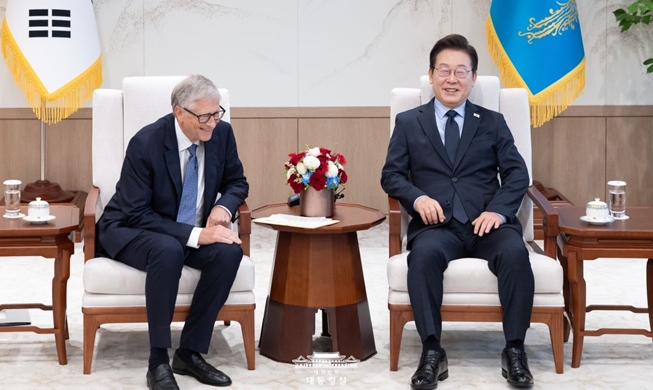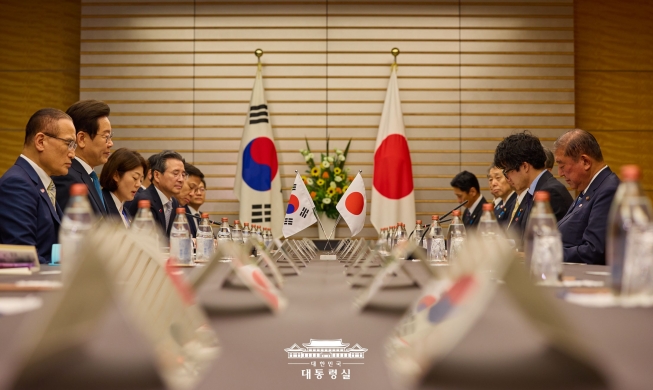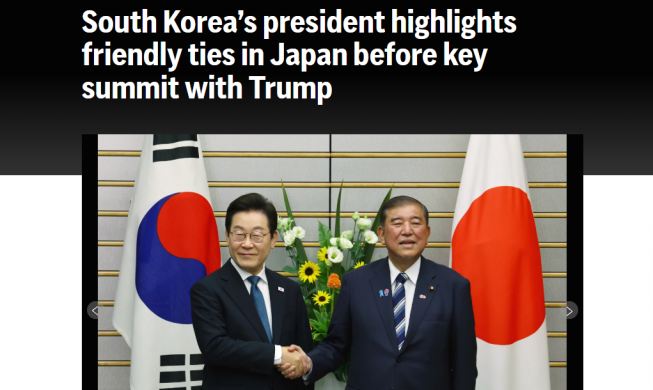
By Yuji Hosaka
Professor emeritus of political science at Sejong University
President Lee Jae Myung, ahead of his trip to the U.S., on Aug. 23, 2025, flew to Tokyo to attend a bilateral summit with Japanese Prime Minister Shigeru Ishiba. This led to everyone questioning why President Lee chose Japan over the U.S. as his first overseas destination after taking office.
Washington is typically the first overseas destination for a Korean head of state. President Lee, however, broke this practice by going to Tokyo first, something unprecedented for a Korean head of state.
His move was interpreted as an attempt to maintain the axis of the Korea-U.S. alliance while also stressing regional cooperation and autonomy. Since 2000, Seoul has shown a change in its identity vis-a-vis its policy toward the U.S. and made its own choices due to generational shifts. This is in line with Korea's efforts to shed its image of being a one-sided follower of the U.S. and strengthen its autonomy.
Despite the need for security cooperation between Seoul and Tokyo, sensitive bilateral issues such as disputes over history and territory have hindered accords between both sides from progressing. Leading examples include the failure in 2012 to conclude the General Security of Military Information Agreement (GSOMIA) and the Acquisition and Cross-Servicing Agreement and the termination of GSOMIA in 2019. Thus the Lee administration apparently decided to visit Japan before the U.S. and frame it as "management of historical disputes and pragmatic cooperative diplomacy" to lower the domestic cost of implementing future policy.
Civil society in Korea has shown strong power to mobilize when it comes to historical issues but maintains a position of opposition in persuading public opinion and engaging in productive diplomacy within Japan. President Lee early in his term announced his government's principles and procedures to normalize ties with Tokyo such as "facing the past while forming future-oriented bilateral relations" and "consideration for the victims." Efforts to create a mechanism for communicating with and promoting participation by civil society can be understood as coming from the Lee administration's strategic mindset to absorb domestic opposition.
2025 holds dual significance for Korea as it marks the 80th anniversary of liberation and the 60th anniversary of the normalization of relations with Japan. This year is when the challenges of healing past wounds and pushing for future-oriented reconciliation intersect. The liberation milestone is especially an opportunity to aggressively evoke memories of Japanese colonial rule and could ignite intense civic discourse on the topic.
The bilateral ties anniversary can be considered a chance for both sides to review the institutional maturity of their relationship and create a systemic two-track approach of "managing disputes over history" and "deepening economic and security cooperation." So President Lee's decision to go first to Japan instead of the U.S. can be interpreted as an expression of Korea and Japan's commitment to transform their "international politics of conflict in bilateral ties" into "international politics of relationship management."
So exactly what did the Lee administration and Korea gain from the latest summit with Japan? Practical benefits, legitimacy of the administration and the opportunity to expedite bilateral cooperation in economy, technology and supply chains. Both countries have complementary traits in sectors like semiconductor materials, batteries and advanced manufacturing processes. Stable supply chains reduce the temptation for either government to look for "conflict-diverting issues" when domestic economic fluctuations occur. Structural cooperation can also serve as an institutional safeguard against diplomatic missteps by leaders.
From a security perspective, the rise of China and North's nuclear and missile threats have heightened the need for cooperation between Seoul and Tokyo and their trilateral collaboration with the U.S. Though cooperation in security issues was also essential in the past, historical and territorial barriers within South Korea and Japan often led to conflict. Yet the latest summit enabled the two sides to design a package of "management of sensitive issues + advancement of working-level cooperation," specifically information sharing, maritime security and joint missile response.
The joint statement from this summit contained a clause on bilateral cooperation targeting the North's nuclear issue but no reference on the Chinese threat, something repeated in the Korea-U.S. summit. Korea did not mention the security threat from China raised by Japan, effectively protecting itself from geopolitical risk.
Through their summit, Seoul and Tokyo resumed their shuttle diplomacy and laid the foundation for holding regular meetings of their heads of state and ministers. They also paved the way to promote practical cooperative mechanisms in areas like supply chains and cutting-edge technologies and the setup of a regular communication channel for crisis. In economy and security, the two sides agreed on linked investments in core materials, semiconductors and batteries to strengthen mutual investment guarantees.
Ultimately, President Lee's decision to visit Japan first apparently sought to use the symbolic year of 2025 to change "international politics of conflict" between Seoul and Tokyo into "international politics of relationship management," setting a stable basis for practical cooperation. Though structural limits remain such disputes over history and territory, early mobilization of the track of systemic, economic security and trilateral cooperation with the U.S. seem capable of curbing the risk of political misuse of conflict and changing the inertia of bilateral relations. Historical issues cannot be resolved overnight but through additional measures focusing on the victims, multilayered governance and public diplomacy, "sustainable management" that seeks "complete reconciliation" is possible.
In conclusion, President Lee's decision to hold a bilateral summit first with Japan holds strategic significance not because of an intent to "break convention" but to "shift inertia" in response to complex risks in security, economy and society. While this diplomatic action was inadequate for improving bilateral ties, it could be considered to have greatly met the necessary conditions for the task.
Professor emeritus Yuji Hosaka teaches political science at Sejong University in Seoul. As a naturalized Korean of Japanese descent, he is also director of the Dokdo Research Institute.
Translated by Korea.net staff writer Yoon Sojung


